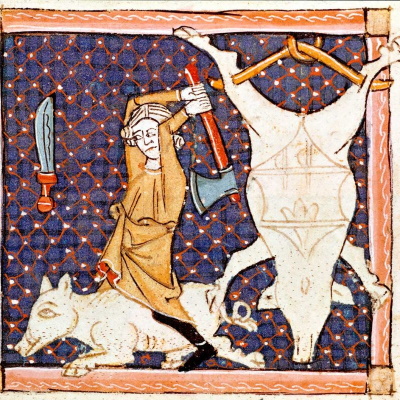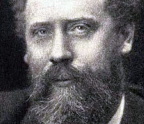My mother died 9 years ago today. This is a previously unpublished meditation on that event, and its meaning for both of us, in a country that had by default decided there is no God and no hereafter.
by John Waters, John Waters Unchained
September 14, 2021
After a long and generally healthy life, my mother, Mary Ita Waters, started to go downhill from the summer of 2011. She had walked with a limp for many years, after a fall in the 1970s, but had been reasonably mobile, her mind as sharp as a scalpel. Now it became necessary to move her bed to the front room downstairs, a further staging post that she resented but accepted because there was no choice.
March 2012 was an exceptional month, weather-wise, and, with my nephew Barry, I took his grandmother on what was to prove her final trip outdoors. We went back to Sligo, to the land her husband Tom had come from as a young man in the early days of the Irish Free State. My mother loved going to Sligo and now, on an unprecedentedly beautiful March day, we drove around it once more, saying very little. We stopped off at the Drumcliff Teahouse, beside the graveyard where Yeats was buried a decade after his death in 1939. My mother was unable to get out of the car, so we brought her tea and scones on a tray. We drove home, as we had many times before, but our hearts were full and heavy.
The decline continued and her movement from the armchair to the front room became slower and more painful. Still, she remained alert and interested in the world around her, maintaining her ready wit and perspective. Whenever I would begin ranting on about some outrage or other in the public domain she had a way of snapping me out of it under the guise of offering sympathy. ‘Ah, don’t be annoying yourself’, she would say, having listened patiently for a while.
Though housebound now, she remained in reasonably good fettle until the first week of July, when she experienced another turn of some kind, after which her mind finally began to unravel. On her 92nd birthday in early August, I arrived home with a birthday cake I’d picked up in Sligo, to encounter a stand-off. My mother was sitting in the front room, out of bed, with two of my sisters trying to comfort and attend to her. Seeing me arrive, she appealed to me to help her escape.‘They won’t let me do anything!’ she implored. In a short time it became obvious that she thought that the man who had returned home was her father, Patrick McGrath, fiddle-player and farm manager of the French estate in Cloonyquin, whom we her children had met only in legend, and who had been dead for the greater part of a century.
Thus, she took us, stage by stage, through the milestones of her 92 years — childhood, adolescence, young womanhood, marriage to Tom, motherhood, middle age — and in doing so through a tour also of the lives we had ourselves entered from her body.
After that, she went into a kind of freefall. My sisters and I maintained a continuous presence with her in the last weeks of her life, caring for her at home until she left us to continue her eternal journeying. We took turns to sit with her overnight, to ensure there was someone by her bedside always, because she would sometimes wake and become distressed or get out of bed without waking at all. It was difficult to watch, but also a kind of grace, because it became possible to see what a life lived in faith can be in the end. Even in her delirium, she still prayed the same prayers she had always prayed, especially the Night Offering which she had taught us to say as children: ‘Jesus, Mary, and Joseph, I give You my heart and my soul. Jesus, Mary, and Joseph, assist me in my last agony. Jesus, Mary, and Joseph, may I breathe out my soul in peace with You.’
I had a strange awareness come over me during those weeks of my mother’s last illness, this sense of being involved in an intense experience, which I might at some time write something powerful about but could not then find words to describe. The hours and days seemed to teem with happenings, experiences and understandings. I kept thinking that I should be writing things down before I forgot them, but whenever I tried to focus on something it would disappear from my field of mental vision. This was a moment I had awaited in myself for a long time, and now here it was, and yet it seemed unreal. The emotions I expected were for the most part not present. Instead of sadness, there was a sense of life continuing around me. I walked and talked, read books and spoke to people on the phone, as though none of this was happening.
After her death, a friend would write, in a text message, a word that seemed to capture my condition of dislocation and discontinuity: rupture. I recognised it as though it were a blow. It’s strange to think of how — at best — sporadically we think about what really grounds us in the world, until it is gone. And this applies even when, like me, you’ve made much of the ideas of it. No matter how much you analyse it, it remains abstract, until the experience of an absence finally brings it to life.
It would eventually dawn on me that much of what I’d been feeling in those final weeks was of an entirely interior character, having virtually no material existence, or even any basis in my thoughts or memories. It was a mixture of pure pain and pure joy and, even yet, almost a decade later, I have not found a way of completely excavating these feelings and turning them into words. The experience of being with my mother while she died created a disorder within me, which I had, or have, no description for. At the time, I had been conflating this tumult of emotion with the quotidian routine of shopping, comings and goings, visits by doctors and nurses, and all the other activities that created a diversion for all of us from the reality unfolding in the front room. Somehow, at some part of my psyche or body, I convinced myself this was the story I wanted to tell the world: about going to Lidl for apples and custard, to make my mother the only dish she could any longer eat. But when I finally tried to write it down, it amounted to nothing. I realised that, notwithstanding my profound sense of being involved in a great drama, nothing much had happened in the world at all, except that my mother had left it, and that, inside of me, everything had started changing. I had also stepped up to face the horizon in a new way, with neither of my parents standing in front to guide or tutor me.
In those dark nights I was brought to another thought: that something related to these feelings — something in the culture into which my mother’s long life had extended — might be intensely threatening to her in these her final days and hours. Many times over the last decade or so of her life, I had reflected on the ways in which the Ireland she had brought us up in was changing radically in ways that were no longer even being adverted to. Profound changes in thinking or unthinking were simply occurring as though organically, but unrecorded in the public conversation, at least in anything of the way that, given the enormity of what was happening, one might have expected. If these changes were referred to at all, it was simply by way of insinuating that they were inevitabilities arising from what was called progress, necessary and beneficial aspects of the chronological march of time.
Something especially odd had been happening to discussion of matters like faith, God, transcendence of the visible world and the idea of a hereafter. Whereas, not long before, the public conversation had appeared to assume that these matters were incontrovertibly settled on the basis of belief in the Christian God, it now seemed that, as if by the wave of a wand, such beliefs were no longer generally regarded as incontrovertible or even plausible, and so could be brushed aside without elaboration or even dismissed completely — and without this sentence of banishment provoking a defence or even a reaction. It wasn’t so much that people were saying that such beliefs were now to be regarded as foolish or superstitious — although sometimes they were — but that in the absence of a commentary on their disappearance, the impression to be gleaned was that they had fallen off some cliff of logic and were floating away out to sea.
It was as if, sometime in the past decade or so, I had fallen asleep for a few years, and then awoken to an entirely new dispensation. Not alone did God no longer exist, but it seemed that almost everyone else knew and understood this and remembered it being agreed. Nobody actually said so openly, but virtually everything that was said, and especially the things people seemed to be avoiding saying, suggested it. Radio and television interviews with those who belonged to the dwindling numbers of believers were conducted in the most perfunctory manner, with questions of faith disposed of politely but without interest. Interviews with non-believers lingered only a little longer on fundamental matters, and seemed to accept at face value the descriptions and observations being delivered, as through a cultural context that had existed for 1,500 years had been carried away on the breeze.
There is something about listening to a discussion or interview on the radio that renders you passive, causes you to remain on the surface rather than listening for the underlying meanings as you might if you were listening to a play or following a prepared speech. Very often, you are led by what is being said, following its shifts and turns and logics with your critical faculties switched off, listening as you might to a song rather than reflecting deeply on the implications of what is being said. Sometimes, afterwards, you become aware of something wrong, something missing, but more often you simply absorb the conversation you’ve listened to without asking yourself what else might have been said. I call this phenomenon an ‘anti-impact’, because it collides with my consciousness in a negative way without necessarily declaring itself. Very often, I will not have noticed anything happening, because nothing, in fact, will have happened. Rather, something has ‘not happened’ that should or might have happened, but because I have not been alert to the matter, I will not actually have ‘missed’ it. A subtext has existed, but it will have insinuated itself only subconsciously. An impression has undoubtedly been left, but something like the opposite of an impact. It is as if nothing at all has been said, but this absence has a hidden meaning that nags at me without leaving a clear sense of itself. Like the dog that didn’t bark in the Sherlock Holmes story, it becomes significant only much later, when something clicks into place in my mind or somebody says something that brings the whole thing back. It is like the experience of sitting on a stationary train at a platform, with another stationary train pulled up alongside. Passengers are joining or disembarking from both trains. You watch through the window the activity in the adjoining train, while you wait for your train to move forward again — the passengers going and coming and settling themselves down. Then, almost imperceptibly, you have a visual sensation of movement. You continue watching the people in the other train as they speed up and, carriage by carriage and with increasing speed, move through your field of vision. You’re off! Then, suddenly the sensation of movement is terminated. There is a momentary stillness, and a palpable jolt as your vision tries to adjust to the stillness of the platform and your surroundings. The final carriage of the other train has passed your field of vision and it become clear that it was the other train, not yours, that was moving. The other train has gone but yours has not moved at all. You had been caught up in an optical illusion, by virtue of having no fixed reference point within your field of vision that was not part of either train. But the most interesting thing is the sense of a disorientating impact, as though you have been stopped up short — more abruptly than seems possible in even a violent impact in reality, but there has been no kind of impact that might plausibly go by the name.
An anti-impact. To be moving at the speed you thought you were moving at and to be stopped like this could in actuality result only in serious injury or death. But, instead, you feel nothing except this strange disorientation, like there should have been a noise or disturbance of some kind registering the impact, but there has been no corresponding sound or commotion. All there has been is a brief, strange dislocating jolt, which consumed your body and being, but with no tangible event or symptom to identify it as a real occurrence. It is the jolt of nothing happening, of your sense of what you’ve been experiencing being abruptly undermined by reality.
This ‘jolt of nothing happening’ occurs too, in a different way, when you listen to a conversation about a topic which you expect to be conducted according to a particular agenda of assumptions, but find that few or none of these assumptions seem to be present. Here, too, you have a sense of receiving a shock to the system, but, since there is no external evidence of this shock, your inclination is to brush it off, to think it must have been a trick of the imagination or sensory apparatus. More and more, I had been experiencing such an anti-impact in the course of media discussions about faith and God.
Going about my business in Dublin through the Noughties and beyond, I used to fret a little about my mother listening to the radio back home in the West. Often I would find myself wondering: what did she make of it all? When she heard the daily discussions that implied, usually without saying as much, that her most cherished and fervent beliefs were for the birds, did she simply feel that jolt of nothing happening and think no more about it? Or, if she did register some kind of incoherence, was she able to remove herself from its vibrations and return to the heart in which she held those certainties she had carried from childhood?
Around the time she became ill, a friend told me of an experience of his that had rattled him. A practicing Christian, he had been attending a family gathering at the home of some friends in the West of Ireland. On the surface, the family had been staunchly Catholic, though, as far as he knew, were no longer involved with the Church to any serious degree. Like many such gatherings, the party occupied the entire ground floor of the house, with guests constantly moving between rooms and joining various conversations and huddles as they pleased. My friend suddenly found himself alone in a room with the woman of the house, a lady of approximately the same age as my mother. She knew who he was, and of his intense involvement with the Church, and they exchanged a few polite remarks on this subject. Then, suddenly, she said: ‘They’re sayin’ it’s all cod, that none of it is true?’ It was a question, not a statement. She looked at him with fear and pleading in her eyes. He sat down and began to talk to her, to undo in her heart the damage of a thousand overheard inanities.
The word ‘cod’ is a kind of Hiberno-English word for nonsense. It is about the most reductive word you might ever expect to hear applied to the greatest questions of existence, almost a nothing word, a word that brushes aside everything it touches. The woman was not saying that she had listened to many profound and challenging discussions about the meaning of life and the validity of the Christian proposal and been discommoded in her beliefs. She was, rather, simply giving back precisely what she had received, putting into a single word the entire cacophony she had been listening to for years. She was conveying precisely the sense this discussion had provoked in her, conveying a feeling she had been left with rather than summarizing an argument she had been swayed by. When my friend told me that story, I found myself wondering: Had my mother ever spent a day or an afternoon, having listened to some vacuous interview or discussion on the radio, wondering if the faith she had cleaved to all her life was ‘all cod’?
Sometimes, in those final weeks of her life, as I sat there reading in the night by her bedside, feeling intensely the changes that had lately occurred in the mentality of our country, I felt this overpowering need to find some means of keeping that culture at bay, lest it invade her heart or soul. I wished I could lay my hands on some kind of metaphysical draught-excluder to keep outside the prevailing unhealthiness and unreason. If someone came into the room and left the door open behind them, I would find myself jumping up to close it, and then realising that it was not the night time chills that worried me, but something more ominous: the smug, ignorant neo-certainties that would have made little of my mother’s faith and sought to steal her hope for the pointless satisfaction of seeming clever.
Before the great questions of existence, it is possible to err in two directions: that of excessive scepticism or an affected certainty that is not open. Pure scepticism causes all certainty to unravel as it develops, but the wrong kind of ‘certainty’ becomes indistinguishable from superstition. In Irish culture, religious belief has long been associated with unquestioning, unquestionable, literal convictions, an absolute ‘faith’ in certain factual propositions. Such a faith appears to stand unassailably until it wavers in the least, and then it buckles at the knees. And this occurs more and more, in many people unable to contend with an entirely different logic of reality that assails them every waking moment through the media and the common conversation of the streets and marketplaces of my homeland. Then, it tends to go in one of two directions: towards a reactive, white-knuckle insistence on the integrity of what is held to, or an outright capitulation to the ‘logic’ of disbelief. For many people, unable to deal with the dilemmas thrown up by such challenges to their beliefs, the clerical abuse scandals which have assailed the Irish Catholic Church for two decades now have functioned as a convenient alibi which enables them to explain their defection from Catholicism, when really the problem is that they are unable to square their previous religious beliefs with what they are nowadays assured is ‘rationalism’ and ‘reason’.
These things I thought as I sat and watched my mother die. It was a slow death and unrelieved by any moment of catharsis. There was no moment of mutual embrace, no final deathbed scene. She simply became ill, deteriorated and finally died. There were difficult moments, sad moments and ‘funny’ incidents along the way, but overall there was simply a death.
I cannot imagine us dealing with the experience of our mother’s death were it not for her faith and the support she and we got from the local curate, Father Micheál, who came to see her every day; or without the rich culture of devotion and ritual which remains like the throb of an amputated limb in the culture of the West of Ireland — a culture which might believe itself relatively impervious to recent drifts but actually is anything but invulnerable, as it wordlessly watches its life ebbing away.
The aftermath of the deaths of both my parents were visited by unexpected occurrences in the wider world. On the day we buried my father, on June 5th 1989, I walked into Mulvihill’s bar in Castlerea and saw, on the television set in the corner, images of a funeral that seemed to bring my own inner feelings to life. The Ayatollah Khomeini of Iran had died just a few hours after my father, and was being buried in Teheran at almost exactly the same time. Except that it was unclear from the picture I was watching how this man was ever going to be buried, because the hordes, seemingly millions of people on whom his coffin was swept along like a canoe on a raging torrent seemed determined to prevent the interment. Mourners at the graveside climbed into the hole dug to receive the Ayatollah’s body, to prevent their imam being buried. Several times, the body was separated from the coffin and had to be replaced inside. I related to the sorrow of those teeming hordes. They did not want their father to leave them, for how could they confront the terrors of the world without him?
The weekend my mother died was the occasion of an equally extraordinary event. In Hillsborough, County Down, on the day after she passed away, a father and two sons were killed in a horrific farm accident. Graham Spence had lowered a ladder into the slurry tank to rescue a dog who had fallen in. His father Noel and brother Nevin had gone to his rescue but had themselves got into difficulties. Emma Spence, sister of Graham and Nevin had made heroic but ultimately fruitless attempts to rescue the three men. On the day after my mother’s funeral, she buried her father and two brothers, and at their funeral delivered an oration that transfixed the nation.
At Ballynahinch Baptist Church, she spoke with a remarkable composure, her voice barely wavering. ‘Godly men,’ she said, ‘they didn’t talk about God, they just did God. They were ordinary, but God made them extraordinary.’ Her words had no trace about them of the tone of wishing or hoping that tends to characterise funeral orations. Emma spoke as though delivering pure facts. Her expression of the idea that God had made her father and brothers ‘extraordinary’ had about it a matter-of-factness that presented God not as a ‘consolation’ but as a self-evident truth. My mother, like Emma Spence, had a great faith. I don’t say a ‘simple’ faith, as in the conventional condescending construction. Her faith was — like Emma’s — matter-of-fact, its apparent ‘simplicity’ arising from the ease with which it fitted into a deep sense of the meaning of reality.
In early September, as she entered what were to be her final couple of weeks, she came back to herself a little, and though weak was able to communicate with us much better than she had for some time. Her confusion diminished too and she recovered something of her old drollness, though she was clearly becoming weaker and continuing to disintegrate in various ways. Her heart was as strong as a diesel locomotive, and sometimes we doubted that she could die at all.
In the depths of the morning of September 14th, I noticed her breathing change. I had heard a great deal about the ‘death rattle’ and, though I had never encountered it before, knew instantly what was happening. As soon as dawn broke, I called the doctor and he came and said that it might only be a matter of hours. After he left, her breathing became easier and she seemed to sleep. That afternoon, I found myself alone with her in the room and felt moved to say something to her, though I was unsure by now if she could hear. In a whisper I thanked her for everything she had done for us. I told her she was the greatest woman I had ever met. I told her it was okay to go, that many people were waiting to welcome her, that He Who Makes Her was waiting too. She gave no sign. Later, she briefly opened her eyes and smiled. It was s strange smile, which meant nothing to me until some weeks afterwards when someone gave me a copy of A Grief Observed by C.S. Lewis, a short book about the death of his wife. In the final paragraph of that book, I read this sentence: ‘She smiled, but not at me’. I knew then what I had seen. My mother died less than four hours after smiling that smile.
She and I had never really moved beyond our primary parent-child relationship. I know many people who in adulthood have achieved relationships with their parents that enable them to become ‘equals’ and ‘friends’. But my mother remained my mother right to the end, just as my father had remained my father until the day of his death. I have some regrets about the fact that, due to the nature of this relationship, I never came to talk to my mother about her faith. Sometimes, sitting quietly with her, I had the urge to open up the box of questions I had about how she had absorbed all the recent changes in our country and how she was dealing with them. But I always decided that the time was not right.
We had never once, I don’t think, discussed anything I’d written in a newspaper. We might glance off something from time to time, but it was as if she always understood that the person who wrote these articles in the newspapers was a kind of construction rather than the son she had reared. I suppose, too, I was self-conscious about many of the things I wrote, especially in front of someone who knew me better than anyone. We both knew that many of the things I wrote about, though important in their own way, were generally speaking not to do with the most vital aspects of existence. My father, who liked the game of politics, had been a more political animal than his wife, who tended to look to the heart of things, in search of the essence of them.
So, I never knew what she thought of what I did for a living. From time to time I would come across at home a cutting from a newspaper — a recent column or article of mine — which she appeared to have a particular interest in, but I never alluded to this and she never sought to open a discussion about what I’d written.
After she died, one of my sisters mentioned that there was a folder of some kind with some of my articles in it. I thought very little of it, presuming that it contained a selection of the pieces I’d occasionally written about Roscommon, the West or home. But no: As I leafed through the folder I realised that my mother had cut out and kept every single article I’d ever written. This awareness brought me to a new kind of sorrow, and also a new kind of pride, quickly followed by a strange realisation. I comprehended that, although I had not thought of myself as being in any kind of dialogue with my mother about the things I wrote about, she had been, all the while, engaging with this aspect of her son. I had thought of my articles as intended for other people, being unsure whether she would want to know about views of mine about things that, in many instances, would be controversial or potentially challenging to some aspects of her way of seeing the world. I should have known better.
Sifting through the newspaper cuttings she had kept, I became aware of my work in a new and completely different way. I recognised my mother as someone other than my mother. Suddenly she became one of those women who sometimes came up to me and said how much they appreciated the things I wrote, but then maybe went on to argue, in the nicest possible way, about some detail of what I had written. Suddenly she was someone with whom I had had two entirely separate and parallel relationships: mother and son, yes, but also writer and reader.
Looking at the headlines and recalling what I had written on this or that occasion, I saw for the first time that my mother and I had been engaged in a conversation for many years. It also struck me that the things I had written, under certain headings, could only have helped her in whatever doubts she might have been having. Although I had been completely oblivious to this, we had been having the conversation that I wanted to have with her.
In January of 2012, the year she was to die, for example, my mother would have read an article of mine in the Irish Mail on Sunday about a six-year-old severely brain-damaged boy who the High Court said should not be resuscitated in the event that his condition deteriorated. The hospital allegedly caring for the boy went to court seeking an order to the effect that, in the event of the child requiring invasive treatment as the result of an acute deterioration, his carers would be entitled to deny him such treatment provided that the medical advice was that not resuscitating him would be in his ‘best interests’. The judge granted the hospital the direction it sought, stating his opinion that continued ventilation of the child in the circumstances would involve undue pain and suffering and would ‘merely’ constitute a prolongation of life with no prospect of improvement. The boy’s parents had disagreed but were disregarded.
I also referred in that article to an episode that had occurred in Italy some years before, in which a young woman called Eluana Englaro was allowed to die after a long-running legal battle. She died on February 9th 2009, four days after doctors began a ‘gradual’ reduction in her food and water intake with the intention of causing her death in accordance with a court order obtained by her father.
I recalled that, three days before Eluana’s death, the father of another young woman had published an open letter to Mr Englaro, telling him of his own experience in a similar situation and begging him to reconsider. Mario Dupuis too had had a brain-damaged daughter. Her name was Anna and she was 15 when she died in 1995. In her short life, she never talked, never ate nor drank. She too was fed by feeding tube. She had to be given oxygen to allow her to breathe, and every day her family members had to aspirate the mucus and drain her lungs.
I recalled that, in his remarkable letter, Mario Dupuis spoke of his own struggle to decide what was in his daughter’s ‘best interests’. He had tried to follow the logic that his daughter was a ‘gift from God’ that the value of life was untouchable, but this was not sufficient for him. He knew that, as a human being, he had to face this situation as it really was, not with rhetoric or ideology. ‘The most incessant and implacable question’ he wrote, was: ‘How can I face all this without being crushed, without giving into cynicism and denying that life has a meaning, albeit mysterious?’
He watched Anna’s friends come and go. He watched them look at his daughter ‘with a strange depth and a different humanity that I, her father, did not have’.
‘At the beginning this made me very uncomfortable, but then it raised my curiosity, and I realized that this daughter of mine, there in front of me, was asking something deep and great of me first of all. Anna was not content to be treated as a daughter; she did not want to be reduced to her condition, but she wanted to be treated as something greater. Anna was there to challenge my usual attitude, as understandable and inevitable as it was, of thinking and reacting, which however, was suppressing a clear fact: In reality there is something mysterious that goes beyond the visible. Unless something happens in our life, we cannot define this “something”, but it does not eliminate the fact that it exists. It was evident that in Anna there was something greater that I could not ignore just because I did not see it, while what I could see was the source of sorrow. So I learned to know Anna in a new, different way, and if not for this new way I would have said like everybody else that Anna would have been better off not surviving.’
It was not, he believed, a matter of faith or values. ‘For me it was a matter of being honest in front of what was happening to me. It was as if Anna were saying to me: “Dad, if your heart is made for a destiny of happiness, my heart is made for the same destiny, look at me like this”. This is a challenge one has to accept, one cannot hide from it.’
His daughter died, just ‘when it had started to be more natural to treat her not as a person needing everything, but as a person who, by her very existence, was the clear sign that there is Another who wants her and brings her to her destiny of happiness. This is definitely not being resigned to waiting for eternal life! This destiny of happiness was so obvious that whoever looked at her became aware of it and was changed.’
I read my own article and wept at the knowledge that my mother had read these words of Mario Dupuis. I had never been so glad about writing something in my whole life. I had never been so glad to know anything as I was that there was the strongest possibility that, as she entered the final calendar year of her long life, my mother had read this article written by her son and known that in this, the greatest sense of all, she was not alone.
Connect with John Waters
cover image credit: spirit111 / pixabay



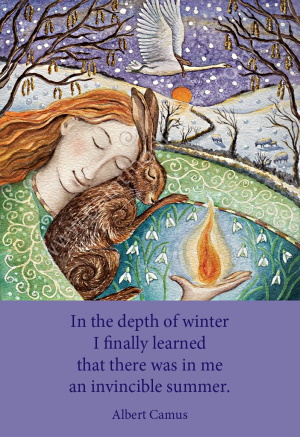 The dimming of the light of the spiritual worlds
The dimming of the light of the spiritual worlds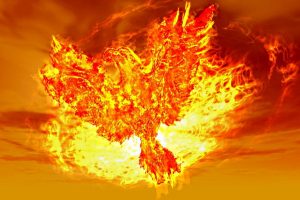 “Come to the edge of the precipice,” He said.
“Come to the edge of the precipice,” He said.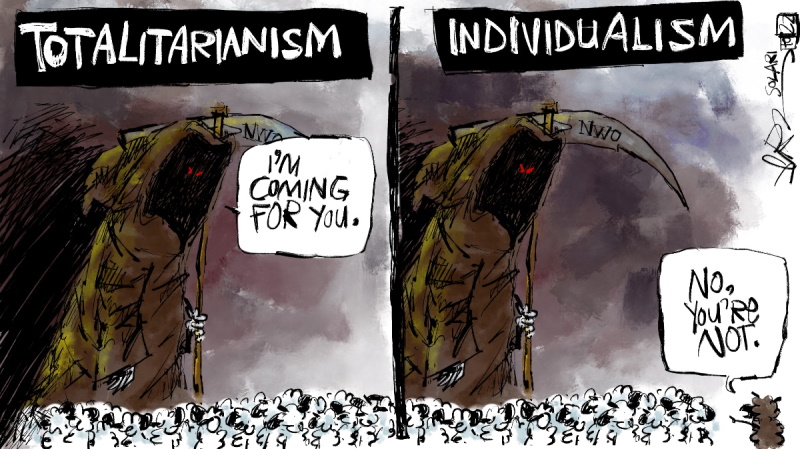



 ne day in a land far away and a time long gone a Priest came to where the Many were tending their crops and livestock and said…
ne day in a land far away and a time long gone a Priest came to where the Many were tending their crops and livestock and said…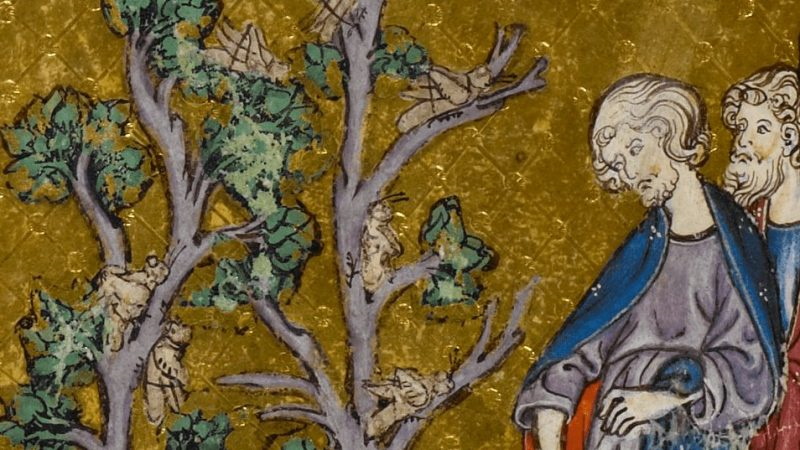
 he next day the Priest came back to where the Many were tending their crops and livestock and wearing their hats of Monstrous Foolishness and said…
he next day the Priest came back to where the Many were tending their crops and livestock and wearing their hats of Monstrous Foolishness and said… ext day the Priest came back to where the people were wearing their hats of Monstrous Foolishness standing in their burned fields and tending their livestock and said…
ext day the Priest came back to where the people were wearing their hats of Monstrous Foolishness standing in their burned fields and tending their livestock and said…